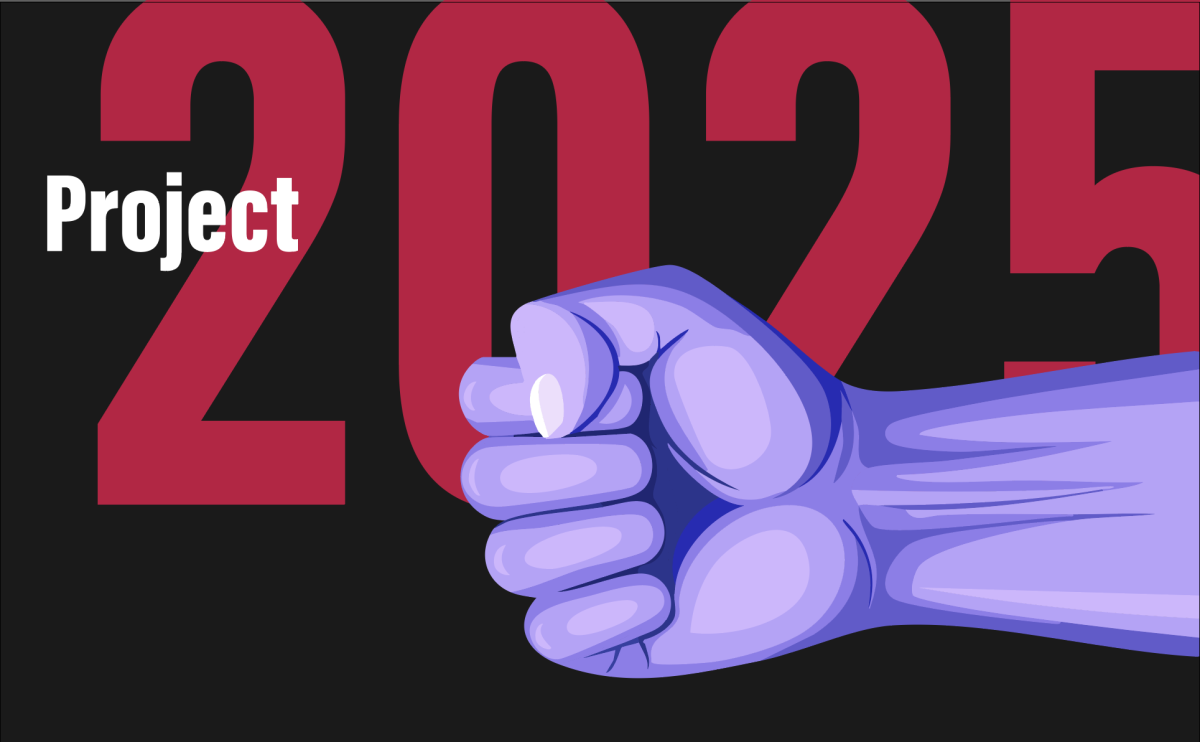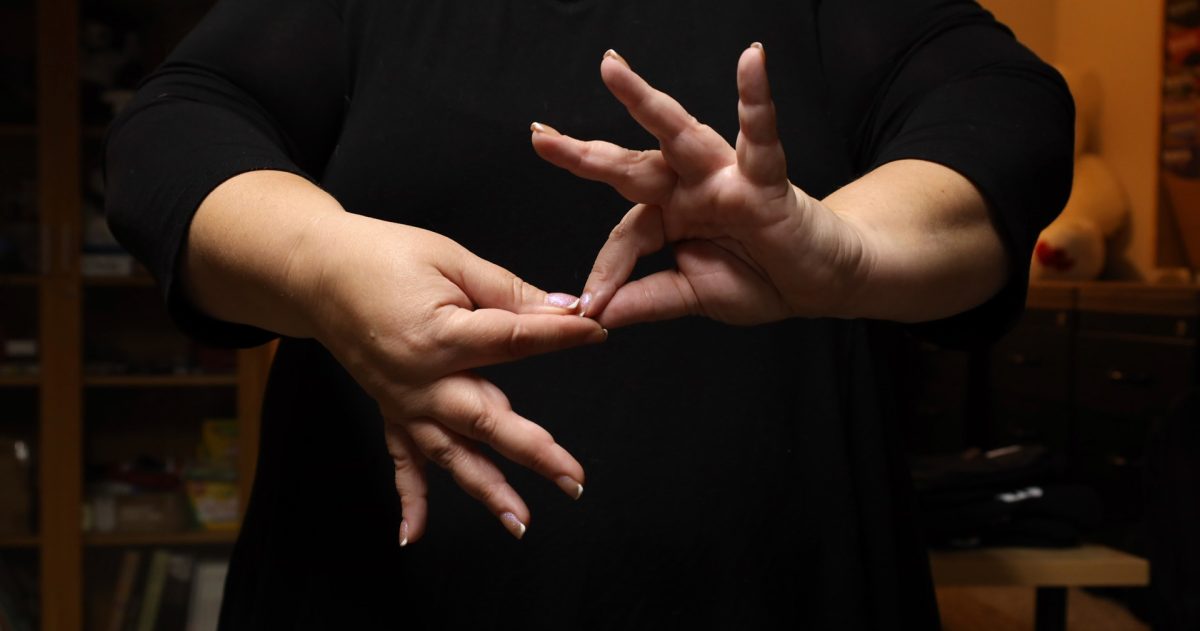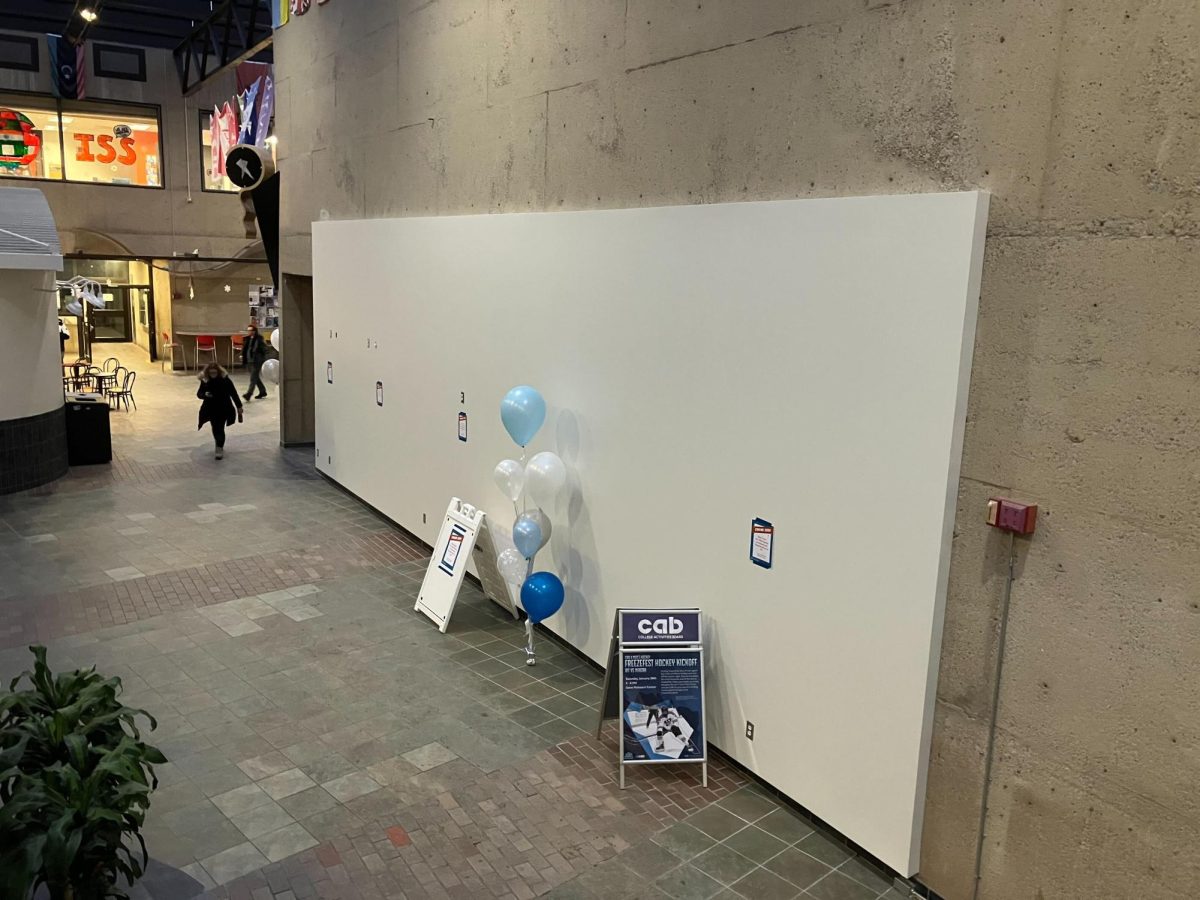Project 2025 lists the National Technical Institute for the Deaf (NTID) as one of two dozen programs overseen by the Office of Special Education and Rehabilitative Services (OSERS), a division within the Department of Education. As concerns grow that it could phase out earmarks for NTID, the Reporter investigates the potential implications of Project 2025.
How Does NTID Receive Funding?
Established by Public Law 89-36 in 1965, NTID has a longstanding history of receiving federal funding. Congress authorizes NTID’s funding annually. Bernard Hurwitz, the Associate Vice President of Administrative Affairs at NTID, provided a more detailed explanation of funding mechanisms.
“[NTID] has its own line in the federal budget, and its appropriation is authorized annually by Congress,” Hurwitz explained. Essentially, NTID’s funding is not tied to the Department of Justice.
The US Senate Committee on Appropriations determines how spending that can be approved by Congress is spent. NTID falls under a subcommittee of the Committee on Appropriation. 15 members of the subcommittee—8 members belonging to the Republican party, currently in the majority, and seven members belonging to the minority party, the Democrats.
A proposal from Project 2025 to move OSERS to HHS could have a meaningful impact. If OSERS were moved, Hurwitz argued, this “would essentially place the agency back where it originally existed before the Department of Education was created in 1979.”
As an earlier article by the Reporter noted, Congress currently oversees a significant amount of NTID funding, granting the college $92.5 million this academic year.
“We have built very strong relationships with members of Congress throughout NTID’s history,” Hurwitz explained. “Members on both sides of the aisle have been and continue to be staunch supporters of NTID’s mission.”
Understanding Project 2025’s Impacts on RIT
Project 2025, according to Paul Dans, aims to coordinate a “unified effort to be ready for the next conservative Administration to govern at 12:00 noon, January 20, 2025.”
The Senate has confirmed that a few of President Trump’s nominees are linked to Project 2025, including Russell Vought, a key author who will lead the Office of Management and Budget (OMB).
Project 2025 proposes sweeping changes to federal agencies, including eliminating the Department of Education, as outlined in Chapter 11.
The role of Project 2025’s policies—particularly how they affect NTID’s funding—remains unclear. A reduction in financing could significantly affect NTID operations.
“[A reduction in funding would] require us to review our tuition charges as well as our financial aid support, which has enabled us historically to offer a very competitive tuition rate,” Hurwitz stated.
Hurwitz reassured that Congress recognizes the NTID’s high graduation and employment. NTID’s statistics show that 96% of alumni find a job within a year of graduation. Clearly, the role NTID plays in providing Deaf education cannot be overstated.
Importance of Deaf Education
Before NTID’s establishment in 1965, Deaf education in the United States was severely lackluster. A report by Homer Babbidge revealed a lack of structure in providing Deaf students with the resources needed to succeed. Joan Naturale, the NTID librarian explained Congress’ critical reaction to the report.
“[The report] talked about Deaf education and its problems,” Naturale signed. “Our Deaf students were not graduating… therefore, it impacted their employment and access to jobs.”
As a response to challenges in Deaf education, President Lyndon Johnson signed Public Law 89-36, creating NTID to provide “postsecondary technical training and education for persons who are deaf to prepare them for successful employment.”
NTID offered Deaf students opportunities to gain essential technical skills and bachelor’s degrees at a time when only 1 percent of college-aged Deaf people were enrolled in a university.
Through NTID’s advocacy, Deaf education shifted away from the oralist teaching method — which forced Deaf people to lip-read and speak — to include captioned videos and notetaking services. Deaf advocates like Robert Panara, the first Deaf professor at NTID, co-founded the NTID Performing Arts program, championing Deaf pride and culture.
“NTID is a very important program,” Naturale emphasized. “The best education, in my opinion, is direct teaching from professors themselves who sign.”
Concerns Regarding NTID’s Future
In light of NTID’s importance, the idea of Project 2025 phasing out NTID’s funding has raised alarm. Funding cuts could affect not only the 1,100 Deaf and hard-of-hearing students currently enrolled but also the 90 percent of NTID students who rely on financial aid. Additionally, 440 employees — including interpreters and captioners — could potentially lose their jobs.
Following Donald Trump’s re-election, Deaf/HoH students have expressed uncertainty about their futures in a post-Project-2025 America. Danik Soudakoff, a third-year student double majoring in Criminal Justice and Sociology and Anthropology, offered his thoughts.
“I feel fearful for my future,” Soudakoff expressed. “The next few years or decades will be one of the most trying times of our generation.”
In a statement released to the Reporter, RIT President David Munson alluded to the uncertainty looming in the future.
“In the coming weeks and months, we expect to learn more about what proposed changes, if any, may receive serious consideration by the incoming administration and the U.S. Congress.”
References to Project 2025 have sparked fear and uncertainty about the program’s future among the NTID community. However, the possibility of NTID funding phase-out depends on two main factors: potential opposition to Project 2025’s ambitious goals and Congress’s continued support for funding Deaf education through NTID.
To further complicate the role of Congress, the Department of Government Efficiency (DOGE) has taken aggressive steps toward dismantling programs to curb government spending deemed wasteful. The U.S.A.I.D., an agency established independently by Congress, has been effectively shut down by the DOGE despite prompting questions about overreach. This is not to say DOGE will target NTID but the unprecedented scale and secrecy the department has undertaken to accomplish its agenda adds to the difficulty of anticipating what may come next.
Future of Deaf Rights in the US
Beyond proposed funding cuts, Project 2025’s additional policy suggestions could curb access to accommodations, harming Deaf Americans long after the second Trump term.
According to the Center for American Progress, Project 2025 would give the President direct control of the Department of Justice under the pretense of addressing bias and bureaucratic inefficiency. Without the Department of Justice to enforce the ADA, businesses lose the incentive to provide accommodations for people with disabilities, which could result in NTID students entering a less accommodating workforce post-graduation.
The White House’s actions following Trump’s inauguration have hardly allayed fears. In an executive order, Trump ordered an end to the “Diversity, Equity, and Inclusion “(DEI) infiltration of the Federal Government. DEI practices, in theory, aim to instill an inclusive culture and attract and support more disabled employees.
On January 22, the Department of Justice imposed a freeze on its Civil Rights Division, rendering it unable to file complaints “until further notice,” as reported by AP. The Civil Rights Division is responsible for Civil Rights violations, including ADA violations. How long the freeze will last is yet, and its potential consequences are yet to be seen.
Another Project 2025 initiative proposes slashing government spending for health services like Medicare and Medicaid, reasoning that states should regulate the medical care industry instead of the government. Only two percent of Deaf patients receive appropriate mental health treatments. The services for counseling and other programs are already limited, so rolling back the services that support them could compound mental health issues in the Deaf community.
While NTID appears secure enough to withstand attempts to phase out funding, the same cannot be said for its students, who are potentially at risk of losing access to much-needed accommodations in the workforce.
“Deaf education will be needed forever for our Deaf students,” Naturale signed. “If not for support services (interpreting, captioning, etc.) I don’t think [education for Deaf students] would work.”
Even though the future is unclear, NTID has a robust history of advocating for Deaf students. Because of this history, students like Soudakoff are confident they can advocate to preserve NTID.
“I know the news lately has been extremely depressing and worrying but I know the fight isn’t over,” Soudakoff added. “We still have a long path ahead of us but I know with collective action, we can reach the end.”










Keith M. Cagle • Mar 16, 2025 at 8:40 am
It becomes even very important for us, the Deaf community members, to contact our Congressional representatives and senators to express our concerns and supports.